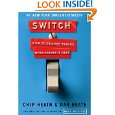Time to Re-Assess?
December 13, 2010
At some point in your job search you need to assess or re-assess your basic assumptions.
These are issues that effect your whole family but whether you are working and looking for something new or unemployed and frustrated that you haven’t found anything, you need to consider your options.
These assumptions are often the toughest to change, particularly as you get older.
For example, are you in the right field. Yes, you may have been working in an area for many years, but is it a growth area. Is it really the best option for new jobs. Is your chosen field expanding or it it the modern version of the buggy whip maker?
It might be tough to leave your field but you need to consider the skills you have and how they might be applied to another job. That’s why your resume needs to reflect your skills, not just your experience.
It’s also good to consider moving to another part of the country or at least expanding your search to areas which might require more of a commute. It’s no secret that not every part of the country has suffered equally in the recession. Maybe you should consider moving.
For example, Silicon Valley, south of San Francisco has been hurt just as badly as other parts of the country. But a recent Justice Department agreement on employee poaching, along with the maturing of major firms such as Google and Facebook, has created a lot more openings. Many people are openly shopping themselves and the resulting turnover will make 2011 a hiring hotbed in the area.
Do you need more training to switch fields or just improve your skills. You may not need to consider an advanced degree – although it’s not a bad idea if you can afford it – but certification programs and community college courses can introduce you to new careers or add skills to your resume.
These decisions should not be made in a vacuum since they impact the whole family, but you’d be surprised how many people don’t even consider talking things over before charting a new course.
Perhaps an even more serious issue, which I’ve touched on in previous posts, is assuming your family would be opposed to an alternative – like moving – before you even bring the idea up. Just don’t wait until you’ve gotten an interview opportunity from a company two states away, to talk about the issue.
That’s just not fair and is a recipe for disaster on a personal level.
Regardless of what stage of your job search you are in, it’s always a good time to re-assess.
Wikileaks and Coaching
December 9, 2010
I think one of the qualities that a coach brings to clients is the ability to see an issue from different perspectives. I was thinking about that as I read the continuing saga of Wikileaks.
What you think about the actions of Wikileaks leader Julian Assange depends on your perspective
Hillary Clinton, US Secretary of state, says the release of the confidential cables from State Department files, puts people in danger and harms the nation’s diplomatic efforts.
Many journalists see the release of the State Department cables as a freedom of speech issue, adding that Mrs. Clinton is just trying to deflect attention from the security of the State Department computer system.
Other journalists say it harms their work because the leaks have reduced the trust they built up with national security sources.
Many diplomats, worried about the security of their communication system, say it will make their memos less honest because they fear the information may become public.
World leaders are also split, depending on how they are pictured. Most of the descriptions are not flattering particularly when it comes to the personal peccadilloes portrayed.
Arab leaders, particularly in Saudi Arabia, are embarrassed because they are seen ‘begging’ the United States to do things they can’t admit they want done. (like attacking Iran’s nuclear facilities.)
Iran thinks the memos, all 250,000 pages, are just fabrications.
Many pundits, both in the US and out, say most of the information wasn’t that valuable but at least the papers show that the United States does know what’s really going on it the world, an that’s probably a good thing.
So, is there a ‘coach-able moment’ here? I guess, next time you have a decision to make, be sure to consider as many perspectives as you can. The real truth depends on your perspective.
Tough Time for Job Hunters
December 6, 2010
If you’re looking for a job, December is a tough month. If you are among the 9.8% of the workforce counted as unemployed or the 17% that is under-employed you can’t help but be a bit depressed by the thought of trying to stretch what income you have, to buy presents.
If you’ve been out of work for a while, you now have to worry about losing unemployment benefits. (although it appears Washington politicians have worked out a compromise today) It’s tough to stay optimistic about the upcoming job-hunting season.
But, now is the time to summon whatever optimism you can and start working on possible strategies. Even if you think you’ve tried every method you could think of , it’s time to start again.
It’s a good idea to at least question your underlying assumptions on a regular basis. Basics such as career fields, location, pay level, or training should all be re-assessed regularly.
A few suggestions might be in order.
Try not to use the New Year as an excuse to wait a few more weeks. Traditionally few companies do much hiring around the holidays. It used to be that they didn’t do many layoffs either, but the pressure for quarterly results has ended that and the public relations disaster of being the Grinch who stole Christmas doesn’t seem to worry most companies. As a result, there’s a lot more movement this time of year.
Also, if you call now and the hiring administrator puts you off until January, that’s one step closer than calling in January and getting put off until February.
This is the time of year when most firms are doing their planning for the year ahead so they will know about possible openings.
Except for retail, things can be pretty slow for many businesses. Yes, that can lead to some “out of office’ replies on emails, but it can also give employers more time to get to know you.
While holiday parties and get-togethers can be uncomfortable when everyone asks what you’re doing, force yourself to go. It’s just networking with eggnog. Try not to turn down invitations because you’re embarrassed, you need to be out in public so people know you’re still looking.
I’ll repeat what you already know – 75% of jobs are not filled through the formal application process and more than half of the jobs are never advertised. Taking advantage of your network contacts can help you get an introduction, find out about a job or even meet someone who does the hiring. You never know what ‘friend of a friend’ might be helpful.
If you haven’t already, learn how to use online networking. It doesn’t cost anything to join Twitter, Facebook or LinkedIn or any of the hundreds of other social media sites. Learn how to find school classmates and old friends. And find out how to use groups to broaden your list of contacts.
Don’t be bashful about telling people you are looking. How else will they find out. Your profile is your resume.
Finally participate in online forums in your field and consider starting your own blog so that potential employers can get to know you better. But don’t just ramble on about current events, comment on issues in your field. Avoid politics at all costs.
It’s tough to sugarcoat job hunting, and it’s tough to be optimistic, but you have to remind yourself that your attitude comes through to everyone you meet, so you’re better of believing that your new job is just around the corner.
Career Night Success
November 16, 2010
Thanks to everyone who stopped by the Kensington Career night.
We had a nice group of area residents all anxious to hear how they could improve their resumes and broaden the chances of finding a job.
Recruiter Mary Pueringer and I spent almost 3 hours reviewing career options, job hunting techniques, and resume details.
We hope to have another event in January when the job hunting season is in full swing.
Thanks to everyone for making our first career night a success.
Free Career Advice
November 14, 2010
Orange and Blue Wine
November 11, 2010
Spent part of last weekend touring two wineries in Napa Valley with a bunch of other Bucknell University Alums.
Ed Farmer, a BU grad from 1969 showed us around the Kendall Jackson Oakville winery where they process grapes for a number of KJ’s brands. This is the Napa headquarters for the brand and Ed oversees 5 different vineyards and as well as the press/processing
operations. Well-known brands such as Freemark Abbey and Alisos Hills get their start here.
Ed, who holds a degree in civil engineering, keeps a watchful eye on all 30,000 barrels. It was great fun to taste barrel samples of a number of wines, although it was more like sampling lemonade in some cases.
It was also the last day of crush and they were hand-sorting some of the fruit that goes into their 0/bottle Cardinale brand. We didn’t get any samples of that, but there was some excellent cabernet, viognier, and merlot.
On the other end of the wine making scale was Reverie Winery on Diamond Mountain in Calistoga – owned and operated by Norm Kiken and his new bride.
Complete with wine cave and Redwood picnic area, Reverie makes about 3000 cases of highly respected wine, including a Roussanne which is not seen that often in California.
Norm is a 1968 graduate of Bucknell, but admits that he learned by the seat of his pants – moving from investment banking when he accidentally discovered he had a palate.
Norm’s wines have drawn high praise from critics and consumers alike and if you ever seen any if your local wine shop by a bottle or two and have a toast to one of Bucknell’s finest. And by all means try his special blend named for his son, Andrew Scott Kikken – that would be the A.S. Kiken brand.
Measuring Sales Metrics
October 19, 2010
There are all sorts of ways to measure the health of a business. I think the less scientific and common sense methods may be best.
Take this example.
One of my favorite walking routes takes me by a new small shopping area. The landscapers decided that a nice low hedge between the shops and the road would be attractive. The store closest to the road where lots of people walk for exercise was a Starbucks. Unfortunately there was no way to get to the coffee shop without an extra 50-yard walk to the driveway in either direction.
Six months after the shopping center opened there was a clear path worn through the vegetation and the hedge where pedestrians, too lazy to walk the extra distance to get their daily latte, had created a shorter route.
About 18 months ago, the Starbucks closed, as part of the corporation’s restructuring and slowly the hedge recovered and the path disappeared.
Three months ago a new locally-owned coffee shop took over the Starbucks’ location. I asked the owner recently how business was and she said, “Fine, it’s only been a few months but we’re doing well.”
I’ll believe her when I see the path through the hedge re-appear.
How To Make a Change
September 19, 2010
Change is never easy. Organizational development specialists have made careers out of teaching companies how to successfully adapt to it . Not surprising, numerous books have been written on the the topic.
. Not surprising, numerous books have been written on the the topic.
“Switch” by Chip and Dan Heath is just the latest to win public attention and climb up the list of business best sellers. It is well written, entertaining and filled with the usual list of everyday examples which ‘prove’ the authors’ contention.
Maybe I’ve just read too many books which claim to hold the key to effective change management, or maybe the authors just make it seem too easy, or perhaps I spent too many hours trying to motivate people or organizations, but it’s just not that easy.
The Heath’s use an Elephant and Rider metaphor to illustrate their theory. It’s just a more concrete way of explaining the rational vs emotional brain dichotomy. They admit the metaphor is not their own but they have adopted it to illustrate the need for a three-way change process.
In a nutshell, the Heath’s note, people need a rational fact-based reason to change, but they also need an emotional reason to make a move and they need to have a clear path. Their theory makes perfect sense, and they have numerous examples of how managers used their reasoning to make changes.
From Brazilian railways to the Woman’s Cancer Center at UC San Francisco there are numerous examples of how managers created both a rational and emotional reason for change and then put people on a path and direction they wanted. I’m not sure the managers they cite were consciously following the logic because they read the book or because it just seemed like the right thing to do, but it worked.
I think you learn more from mistakes than success and I would have liked to have seen more examples of change management that went awry when they attempted to use the theories in the book but maybe that’s too much to expect.
Still, I think the book is worthwhile and provides some valuable insights into some successful changes and can provide the underpinning for an organization or an individual trying to make a change.
It’s certainly another example of a technique any coach can use to work with client’s who say they want to change but can’t seem to get moving.
As I noted in an earlier post this was my first electronic book. I downloaded it from Amazon and read it on my iPad. Emotionally I just wanted an iPad, rationally I could carry this and many other books wherever I wanted and Steve Jobs certainly made the path pretty easy to follow.
E-Book Reading
September 15, 2010
I completed reading my first electronic book recently. (Review to come shortly) The only thing I can say is that reading a book on an iPad (or any other device) is, well, different.
Little things I’m used to doing, such as thumbing ahead to see how many pages are left in the chapter, are more difficult.
Highlighting text is easier, once you understand what the device or application wants. Reviewing all the highlighted material, to help write a review or for research, is certainly much easier.
I was worried that my eyes would get tired quicker but that proved not to be the case. Downloading the books has been easy although, not every service has every book, so it sometimes takes a bit of searching. Browsing the online bookstores is certainly not as pleasurable as strolling through my local bookshop. You have to know what you want electronically speaking, before you go start.
Using the iPad was easy enough although it can’t be used in every situation and I doubt I would take it to the beach. But I was able to take several books on a recent trip with little or no extra weight.
It will be a while before electronic books replace the printed word. There is still something more satisfying about holding a book in your hand, but I have already downloaded a few more and I’m sure, in time, iPad reading will become my regular habit.
Making Assumptions
August 21, 2010
I was in a local card shop recently when a young mother and her tow-haired 3-year-old walked in.
They had obviously been in before because the youngster made a bee-line for some cuddly stuffed animals and, after a brief stop, headed for a candy display conveniently placed at his eye-level.
“OK,,” his mom said, “you can have one.”
“No, two,” he answered.
“One,” his mother said firmly.
His mother eyed me and then the clerk, who were watching to see who would win the battle of wills. The conversation degenerated quickly to “One,” Two,” “One,” “Two.”
Exasperated the mother tried “It’s either one, or none.” The youngster, looked up sadly and holding two candies in his hand, said simply, “I was thinking of you.”
Guess how many candies mom bought.
Next time you get into an argument, make sure you think things through before you back yourself into a corner.


